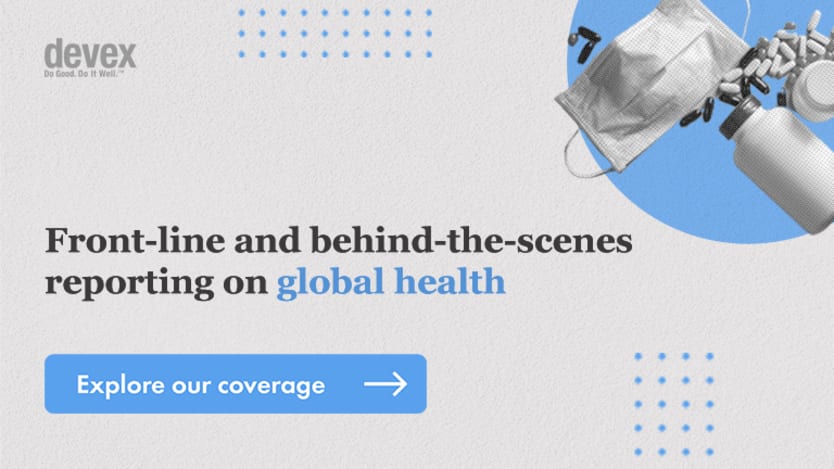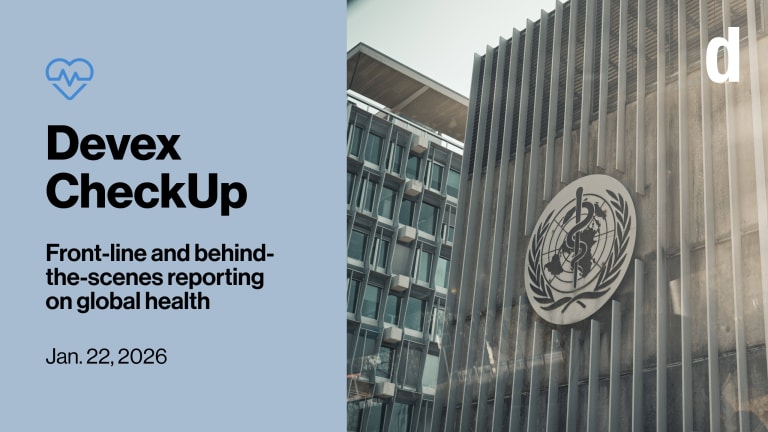
Mark Suzman, CEO at the Bill & Melinda Gates Foundation, announced Thursday that the foundation is supportive of temporarily lifting coronavirus vaccine patent protections.
“No barriers should stand in the way of equitable access to vaccines, including intellectual property, which is why we are supportive of a narrow waiver during the pandemic,” he wrote in a statement, which was an about-face for the world’s largest private foundation.
The announcement follows criticism that Bill Gates — the billionaire philanthropist co-founder of the foundation, which is behind much of the international response to the COVID-19 pandemic — was on the wrong side of history in this debate.
Gates opposed waiving some provisions of the World Trade Organization’s Agreement on Trade-Related Aspects of Intellectual Property Rights, or TRIPS. A waiver would allow member nations to stop enforcing a set of COVID-19-related patents for the duration of the pandemic so that low- and middle-income countries can produce or import generic versions of vaccines.
Gates met with U.S. Trade Representative Katherine Tai last week to make the case for protecting these patents, but Tai on Wednesday went against his recommendation when she announced that President Joe Biden’s administration would support waiving intellectual property protections for COVID-19 vaccines.
The White House backed the TRIPS waiver despite intense opposition from the pharmaceutical industry, the Gates Foundation, and Bill Gates himself.
A Globaldev Guide to New Social Media
Explore how globaldev organizations are using TikTok, Clubhouse, and WhatsApp for outreach, communications, and fundraising, in our new special report.
Last week, Gates said in an interview he did not think it would be helpful to change intellectual property rules for the vaccines.
“There’s only so many vaccine factories in the world,” he said. “The thing that’s holding things back in this case is not intellectual property. There’s not like some idle vaccine factory with regulatory approval that makes magically safe vaccines. You’ve got to do the trials on these things, and every manufacturing process has to be looked at in a very careful way.”
His comments drew outrage, but they reflected the foundation’s position — until Thursday — that intellectual property underpins innovation and does not present a barrier to equitable vaccine access.
“There has never been a point at which the Gates Foundation — before the pandemic, at the start of the pandemic, and now at the worst moment of the pandemic — is willing to surrender and look at IP as something that has to be managed differently to ensure that we’re doing as much as possible,” Rohit Malpani, an independent consultant, Unitaid board member, and former director of policy and analysis at Médecins Sans Frontières, told Devex earlier this week.
But the foundation has reconsidered its position, due in part to the COVID-19 surges in India and Brazil, as well as the lack of vaccines across African countries, which Suzman said made clear that more needed to be done.
Groups working to expand the low-cost supply of vaccines should have done more earlier on to push back against the Gates Foundation as it laid out its approach to ensuring COVID-19 vaccine access, Malpani said.
“The Gates Foundation’s idea is: We have to work through these pharma companies because they have so much experience and resources and leverage,” he said.
Malppani said there has been a fundamental disagreement between the Gates Foundation and many of the organizations that have sought to expand access to medicines in low- and middle-income countries, which see pharmaceutical companies as part of the problem rather than part of the solution.
“The Gates Foundation’s approach is not to see this as something that’s fundamentally broken, but something which you can sort of try and fix on margins through philanthropic investment, through additional government investment, and by encouraging companies’ better angels to try and address these market failures,” he said. “That means ultimately that people who live in poverty or people who live on the wrong side of the technology divide have to rely on goodwill and philanthropy for something that is actually their right.”
“There has never been a point at which the Gates Foundation ... is willing to surrender and look at IP as something that has to be managed differently.”
— Rohit Malpani, independent consultant and Unitaid board memberThe Gates Foundation has backed the COVAX Facility, which was set up to distribute billions of coronavirus vaccines in low- and middle-income countries but is not on track to meet its targets.
“COVAX is failing,” said Priti Krishtel, a co-founder and co-executive director at Initiative for Medicines, Access & Knowledge.
But Gates “doesn’t want to accept that there are any limitations to a monopoly-based model,” she said.
“At the beginning of the pandemic, it felt delusional. At this point, it definitely feels that way,” Krishtel said, suggesting that the devastating second wave of COVID-19 in India might have been avoided had IP protections been waived.
Before the U.S. announced support for a waiver, a spokesperson for the Gates Foundation told Devex the decision on the TRIPS waiver lies with World Trade Organization members.
“Companies should continue to share vaccine know-how with qualified manufacturers, find ways to reserve vaccine doses for lower-income countries via COVAX, and commit to tiered pricing,” the spokesperson said in an email.
The spokesperson said that high-income countries should commit funding to COVAX and share doses sooner rather than later.
“And philanthropy should create incentives for partners from all sectors to come together in pursuit of solutions to the world’s most pressing challenges,” the spokesperson wrote.
Proponents of the patent waiver, who were up against lobbying by pharmaceutical companies — which they say Gates encouraged — applauded the U.S. decision.
“Bill Gates asked everyone to block the TRIPS waiver and trust a handful of companies hoarding IP and know-how, but now governments and the public will have more of a say,” said James Love, director at Knowledge Ecology International.
The must-read weekly newsletter for exclusive global health news and insider insights.
He echoed sentiments expressed by other experts who said that intellectual property is just the starting point, as there are still many other challenges standing in the way of access, including knowledge transfer and regulatory barriers.
Prior to the Gates Foundation’s announcement Thursday, experts who opposed its stance on the best ways to ensure global access to COVID-19 vaccines asked whether the TRIPS waiver debate could serve as a turning point for its position on IP and access to medicines.
“One hopes that the decision of the Biden Administration to support the TRIPS waiver for vaccines would give pause to the Gates Foundation and its orientation to intellectual property issues and multinational drug companies,” Malpani said in an email after Tai’s announcement and before the Gates Foundation’s announcement.
“Hopefully both the Gates Foundation and Bill Gates can join efforts to limit the power of pharmaceutical companies during this global emergency instead of defending the industry's performance, and recognise that principles and policies matter much more than charity and philanthropy when trying to ensure equity and fairness,” he said.





